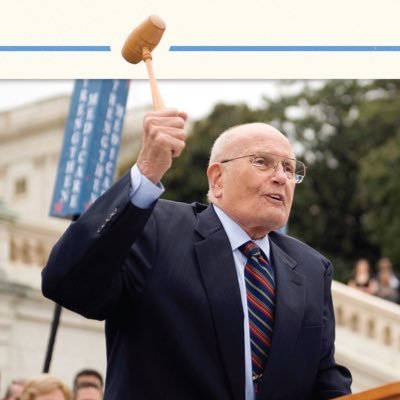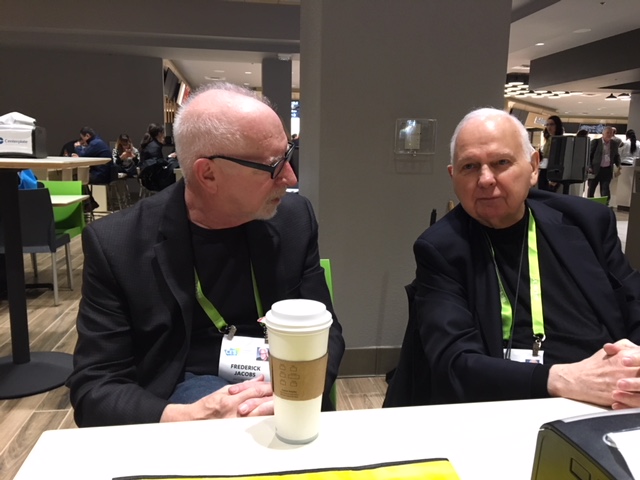
Whether you work for a newspaper, TV station, or you’re in broadcast radio, the last decade has been challenging. That’s a nice way of putting it. For many, it’s been anguishing, stressful, and even gut-wrenching
Disruption comes in many forms. It’s not just about having the vision and the wherewithal to make the transition to digital. It’s not just recognizing the change that is all around us. It’s about addressing the cultural shifts that must occur within mature organizations to make them happen effectively.
Many companies have hit the wall trying to nurse their employees through the process. Some organizations have many “legacy” staffers who simply don’t have the will or the aptitude to adapt.
As my friend Tom Bender was fond of saying, “It’s like turning the Queen Mary.”
Actually, sometimes it’s even harder. Late last year, Media Post was one of many outlets to gets its mitts on a memo from Times’ Metro section from Clifford Levy, its new editor.
In a blunt, in-your-face manner he let his staff have his unvarnished assessment of the section:
“Our department remains grounded in a print approach and a print sensibility, often seemingly clinging to the idea that longstanding practices should be enough to get by in the digital era.”
Levy went on to exhort his staff to adapt – to more proactively consider how readers are being engaged on digital platforms. And then he offered the results of his analysis of Metro, in a no-holds-barred declaration:
“…I’m closely examining what kind of talent, skills and experience Metro reporters and editors need for our department to have significantly more impact – and the extent to which Metro’s current staffing addresses those needs.”
 Talk about a shot across the bow. And the memo was accompanied by the firm suggestion that employees might consider buyouts to speed up the process for those who simply don’t want to embrace Levy’s vision of the future.
Talk about a shot across the bow. And the memo was accompanied by the firm suggestion that employees might consider buyouts to speed up the process for those who simply don’t want to embrace Levy’s vision of the future.
The Times’ Metro section isn’t the only print dinosaur to go down this path. In fact, most of them have – with checkered results.
Hearst Magazines’ new president, Troy Young, has taken essentially the same tack, sending the message that change at his operation isn’t just desirable – it’s essential. In another Media Post story, he’s made it known that editors “more comfortable with creating easily digestible digital content” would have an advantage over “those who had dedicated careers to editing print.”
While there may be some radio CEOs thinking along these lines, conceiving these strategies and successfully implementing them can be two very different things.
In this blog, we’ve talked about the inherent conflict between “performing” and “transitioning” in the legacy media business – the dichotomy between producing quarterly results while simultaneously reshaping companies to be better prepared for the consumption and marketing changes rapidly taking place, especially with younger audiences.
Neither Levy nor Young uttered the term Millennials (much less their Gen Z little brothers and sisters) in their controlled tirades, but they didn’t have to. The traditional media generation gap brands are facing have become more like an abyss as young people gravitate away from print, television, and radio in pursuit of on-demand/subscription programming they can personalize and customize on the devices of their choice with fewer or no commercials.
But it’s not necessarily a matter of age, but of mindset.
A great example of this has recently been playing out in Washington, D.C. and Detroit where a very “mature” politician from another era has become known as the “King of Twitter.”
No, I’m not talking about the President, but Representative John Dingell of Michigan who passed away last week at the ripe old age of 92. He holds the distinction of being the longest-ever serving Congressman in American history, representing “The Mitten” with distinction for nearly 60 years.
the distinction of being the longest-ever serving Congressman in American history, representing “The Mitten” with distinction for nearly 60 years.
So, you’d think someone of Dingell’s age and demeanor – after all, holding the same job for virtually his entire career – would be a Luddite when it comes to adopting new technology.
We all know people of a certain age who have stayed too long at the party, refusing to engage in social media, use a smartphone, shout orders at Alexa, or call for an Uber.
But that was not Dingell. In fact, he not only took to Twitter – he aced it. It’s one thing for a crusty old Congressman to be known for the legislation he sponsored. We think of these guys at endless ribbon-cutting ceremonies or reciting the Robert’s Rules of Order at an endless stream of committee meetings.
For Dingell, it was a whole other distinction to be known for the clever, witty, acerbic tweets he wrote. Everyone from Mashable to the local Detroit TV news stations recognized Dingell’s Twitter adroit skills:
There were the funny ones;
Staff has now informed me of what a Kardashian is.
I’m only left with more questions.
— John Dingell (@JohnDingell) July 22, 2014
Then the clever ones:
Someone told me that the man behind everyone’s favorite cup of coffee might run for President and I just want to wish @TimHortons the very best. You have my support.
— John Dingell (@JohnDingell) January 29, 2019
And this:
Snubbed for the 89th straight year. I’m feeling good about 90 though. https://t.co/JerX6O1Dco
— John Dingell (@JohnDingell) November 18, 2015
But Dingell could get serious and political on Twitter, too:
As this Congress begins, a bit of advice for new Members that I received back in 1955:
For the next six months you’re going to wonder how the hell you got here. Then one day you’ll come on to the House floor, look around, and wonder how in the hell all the other fools got here.
— John Dingell (@JohnDingell) January 3, 2019
Dingell was active on Twitter right to the end, dictating tweets to his wife, Debbie. He could be direct and tough on the platform when he wanted to be:
I signed up to fight Nazis 73 years ago and I’ll do it again if I have to.
Hatred, bigotry, & fascism should have no place in this country.
— John Dingell (@JohnDingell) August 12, 2017
Even an old scrapper like Dingell was able to make the transition to digital – and became one of the best tweeters in the House of Representatives. He mastered a new language – one that limited writers to just 140 characters or less. Not bad for a guy who made it up to the “9th floor.”
None of Dingell’s prowess should be thought of as mastering the ability to puke out tweets at will. Anyone can do that. It’s something bigger than that. It’s a communications strategy that connotes an understanding of the environment you’re in, and connecting with a community – in this case, colleagues, the media, and constituents.
Dingell’s story is reminsicent of Jerry Lee’s experience and trajectory in the radio business. Jerry owned WBEB in Philly for decades, but is also one of the most tech curious people in the radio business – and he’s in his seventies. Jerry has become a mentor to Paul and me – we meet for an annual breakfast at CES each year – and we listen to him.
 For us, CES 2019 was our 10th consecutive. For Jerry, it was his 51st. Paul and I introduced him to some of the Consumer Technology Association staffers we work with on our tours. It turns out Jerry is one of three people – on the planet – who can boast this CES attendance record. Like Dingell, it speaks volumes about his mindset and POV.
For us, CES 2019 was our 10th consecutive. For Jerry, it was his 51st. Paul and I introduced him to some of the Consumer Technology Association staffers we work with on our tours. It turns out Jerry is one of three people – on the planet – who can boast this CES attendance record. Like Dingell, it speaks volumes about his mindset and POV.
I asked him a number of years ago why attending CES is as essential on his annual calendar as the 4th of July or Thanksgiving. Why show up for this chaotic event, year in and year out, at an especially inconvenient time of the year. Without batting an eye, Jerry said this:
“Because I don’t want to miss the future.”
Dingell and Jerry should inspire radio broadcasters who remember cart machines, teletype machines, and head cleaning solution. It’s not about age – it’s about outlook and understanding. That’s what both Levy and Young are trying to get across at their respective “Queen Mary’s.” You don’t accomplish transitions with browbeating or rants. You rationally work with your staff – your talent, your salespeople, your executive team – to paint the picture and hope they’re prescient enough to get the message.
Right now, every radio company in this country from the biggest behemoths to the mom & pops need a workforce open-minded to immersing themselves into what’s new, while using their radio skill sets to continue to create and market great local audio content.
It’s not about whether you should do a podcast or design an Alexa “skill.” It’s about seeing the entire media landscape, and strategizing ways in which business models can work in this changing environment. It is understanding how technology is affecting the ways in which consumers entertain and inform themselves. And then keying in on ways to accommodate those changes.
Meanwhile that memo from the New York Times’ Levy almost led to a near staff insurrection, somewhat gleefully reported in the New York Post, arch rival of the Times.
The result was a town hall meeting, led by a host of Times executives, including their publisher, executive editor, and CEO in an effort to defuse a  volatile situation.
volatile situation.
And that strongly suggests that traditional media chieftains need much more than a vision – they need to effectively communicate a changing digital mission to the rank and file. And in the end, they need buy-in from staffers.
Change is hard, especially within organizations that “have always done it this way.” Modernizing old-line businesses may be akin to turning the Queen Mary, but it can be done. Treasures like John Dingell – and many other examples throughout the media business – clearly prove it’s not about chronology but understanding the changing world around you.
The digital icebergs are everywhere, leaving the navigation of radio’s “ships” to the smartest, most intuitive captains.
In Monday’s post, we’ll go back to the Jacobs Media archives for a simple idea from more than a decade ago that still has resonance today.
In the meantime, sail on, sail on, sailor.
The Detroit Free Press called John Dingell a “Twitter superstar.” Here are some of his greatest tweets.
- Can Radio Afford To Miss The Short Videos Boat? - April 22, 2025
- Media And Technology In 2025: Believe It Or Not! - April 18, 2025
- In Radio, You Just Never Know - April 17, 2025




Excellent post.
Fred, your daily blog posts are inspiring and enlightening…appreciate you. If we don’t fight to stay in front of this tsunami, we will indeed drown in it.
Having spent two years away from radio in 2014 – 2016, it was a real eye opener to work in the saas world, and see our business through a different lense. We used to consider ourselves a “toaster” to most users back in the day, in that we are just another appliance in the kitchen or bedroom, but that has changed considerably with the onset of the digital-on demand world. Homes and autos are no longer our haven.
We still have a lot to learn, and not a lot of time to educate and implement!
No doubt about it, Scott. The pressure’s on. And that makess it so challenging for companies to keep up/adapt while hitting its standard ratings/revenue markers. It’s probably why so many of us are stressed out all the time. Thanks for the kind words. Much appreciated.
“It’s not about whether you should do a podcast or design an Alexa “skill.” It’s about seeing the entire media landscape, and strategizing ways in which business models can work in this changing environment.”
Amen! I heard the owner of a radio group say the other day, “We are a radio company.” Ouch! He had better have an exit strategy. The radio business is now the electronic communication business. Survival depends on understanding and embracing all platforms.
Agree, agree. There are some basic truths that are misunderstood OR being ignored. Thanks for the comment.
I often say Radio is now in the audio content business. As geographical monopolies break down as the broadcast signal dies, it is critical to begin to change the view of:
What is the Market?
What is the supply chain (delivery of content)?
What is the revenue model?
What is the best agile operational structure?
Robert, good questions all. And none has to do with the traditional ones radio has been asking for years. Thanks for highlighting these, and thanks for contributing to the conversation.
This Blog is one of the most “right on” pieces I have seen. Over the years you have amazed me with your insight and ability to change with the times. Bravo!!
Much appreciated, Jay. I’m no Jerry Lee, but I”m working on it. 🙂
Amen and thank you. On all fronts. And one has to embrace it all the way around.
I have been fortunate to work with media visionaries throughout my career and I am grateful for the education and the opportunity to pass it along to others entering our exciting industry.
Leslie, thanks. Apprecite the comment.
I appreciate your skill as a writer and pundit Fred.
Thank you for your talent, diligence and insight. You have a deft hand when it comes to your critiques and observations as you described the slow painful descent of the medium which I used to love.
It’s tough out there for all traditional media, Ed. In Tuesday’s post, we’ll take a look at ways in which radio can face up to the challenge. Thanks for the very kind comments.